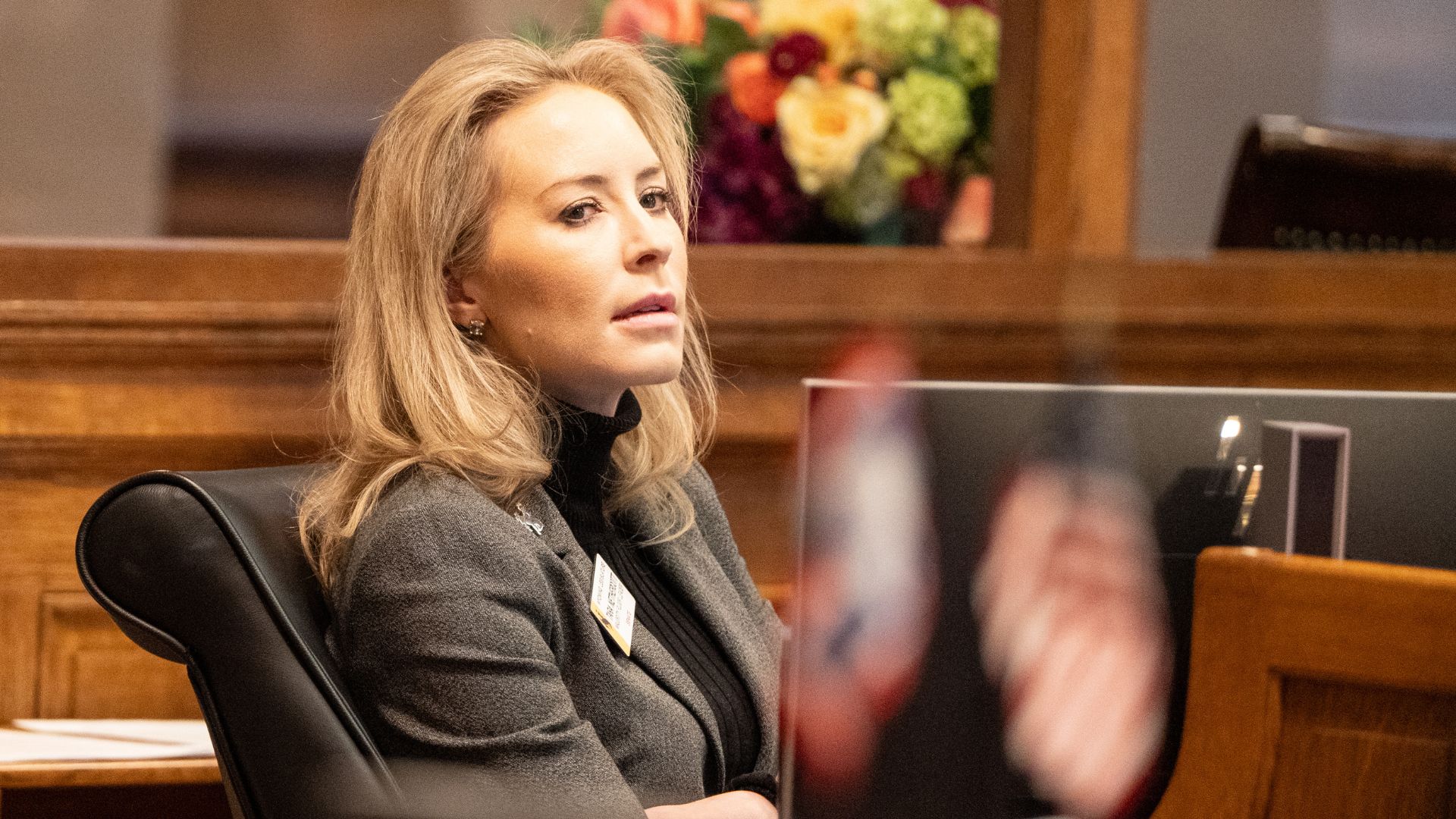Wyoming lawmakers move to increase state’s share of gambling revenue

CHEYENNE — Wyoming lawmakers moved Thursday to capture a larger portion of some gambling revenue after learning current taxation on online sports wagering is lower than in other states.
Online wagering activity over the past five years totaled $629.7 million, but the state received $3.8 million of it through tax, according to the Legislative Service Office. Wyoming currently taxes online sports wagering revenue at 10%.
The first $300,000 of that tax each year goes toward the Wyoming Department of Health to distribute to counties to address problem gambling. The rest is deposited into the state’s main spending account, known as the general fund.
However, during the Legislature’s Select Committee on Capital Financing and Investments meeting in Cheyenne, Legislative Service Office associate fiscal analyst Karen Vaughn said the average tax on online sports wagering in other states is 19%.
“I can tell you that none of the surrounding states are lower than 10%, or 10% or less,” Vaughn said.
Rep. Liz Storer, D-Jackson, successfully moved to draft a bill raising the online sports wagering tax in Wyoming to 20%. This number is a “placeholder,” Chairwoman Sen. Tara Nethercott, R-Cheyenne, noted, as legislative staff work to calculate the fiscal impact of this tax for the committee’s next meeting.
“No doubt we’ll hear from folks from the online sports wagering industry,” Nethercott said.
Skill-based games
The committee also moved to draft a bill that raises the net proceeds tax on skill-based amusement games to 25%.
Currently, 20% of net proceeds from skill-based amusement games go toward local governments, cities and the School Foundation Program, which funds public education. Since this type of gambling was legalized in 2020, the SFP has received around $11.6 million.
The additional 5% supported by the committee would go toward funding roads and highways.
“There’s roughly a $500 million to a billion-dollar shortfall just on our paved roads in the state of Wyoming,” said Wyoming County Commissioners Association Executive Director Jerimiah Rieman. “So to the extent that you’re going to put it to highways, yes, I would request that you also consider the other local governments that have considerable road systems in this state.”
However, Jonathan Downing, a lobbyist for Cowboy Skill Games, LLC, said the 5% tax could burden local Wyoming businesses. Skill games are typically located in bars, truck stops and in charitable nonprofit types of entities.
“Just to be clear, that type of increase would be borne by those locations that are mainly serving more Wyoming small businesses,” Downing said.
Pari-mutuel wagering
Pari-mutuel wagering is a bit more complex, Vaughn noted, because it is taxed based on total handle. Live horse racing is taxed at 1.5% of the total handle (the total amount wagered), which is transferred directly to the Wyoming Gaming Commission.
Historic horse racing machines are also taxed at 1.5% of the total handle, with 1% allocated to local governments, 0.25% to the Wyoming Gaming Commission and 0.25% for the state’s savings account, formally known as the Legislative Stabilization Reserve Account.
Rep. Bob Nicholas, R-Cheyenne, successfully moved to add 1% more tax to HHR machines, “because that’s where the dollars are,” and to have that money go toward highway funding. Sen. Mike Gierau, D-Jackson, made a friendly amendment to add this tax to all simulcast operations.
Nicholas estimated the 1% tax would generate an extra $50 million for the state.
Wyoming Downs and 307 Horse Racing general counsel Traci Lacock pushed back on the tax hike. She told the committee the effective tax rate on her industry is actually 1.9%.
“There is a 1.5% tax that you were given the breakdown for,” Lacock said. “But in addition, we are required to pay 0.4% to the Breeders Fund. … So your motion would effectively make it 2.9%.”
In 2024, three operators paid $5.4 million into the state’s general fund and $5.3 million into the LSRA. Counties received a little over $11 million, and cities received a little over $10.1 million.
She added that total handle is often misconstrued as total revenue. For example, if a person bet $1 and won $3, and then played that $3, the total handle would be $4. Out of each dollar, 90 cents goes back into the pool. Taxes take out 1.9 cents of the dollar, and operators keep 7.2 cents.
With that 7.2%, operators pay property taxes, leases, employees’ wages and so on, Lacock said.
“When you take our effective tax rate and you turn it into gross, we are being taxed at about 25 to 30% of our gross,” she said. “When you’re thinking about businesses in Wyoming, employees in Wyoming and the taxes we already pay. So I just would ask that you think about that as you think about a tax increase.”
This story was published on June 13, 2025.







